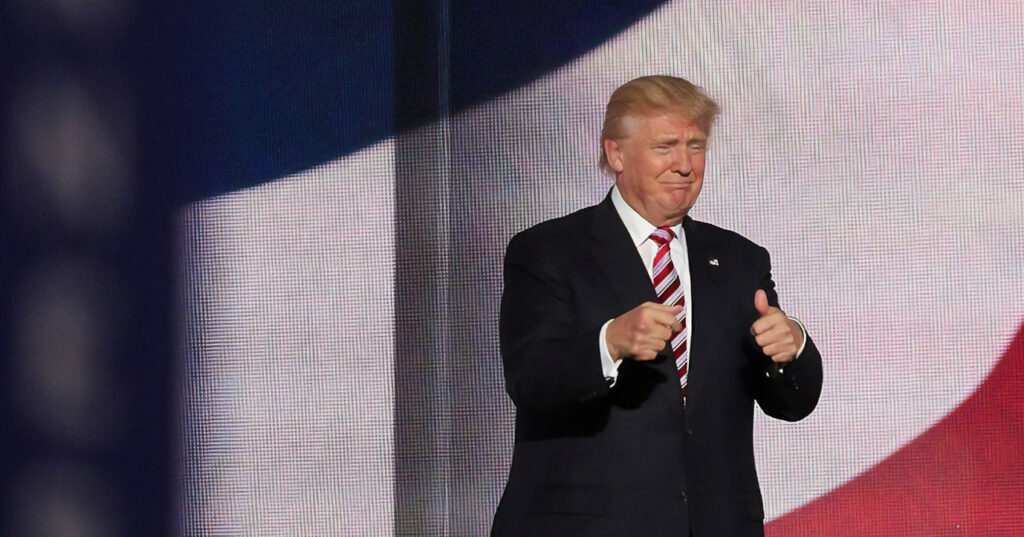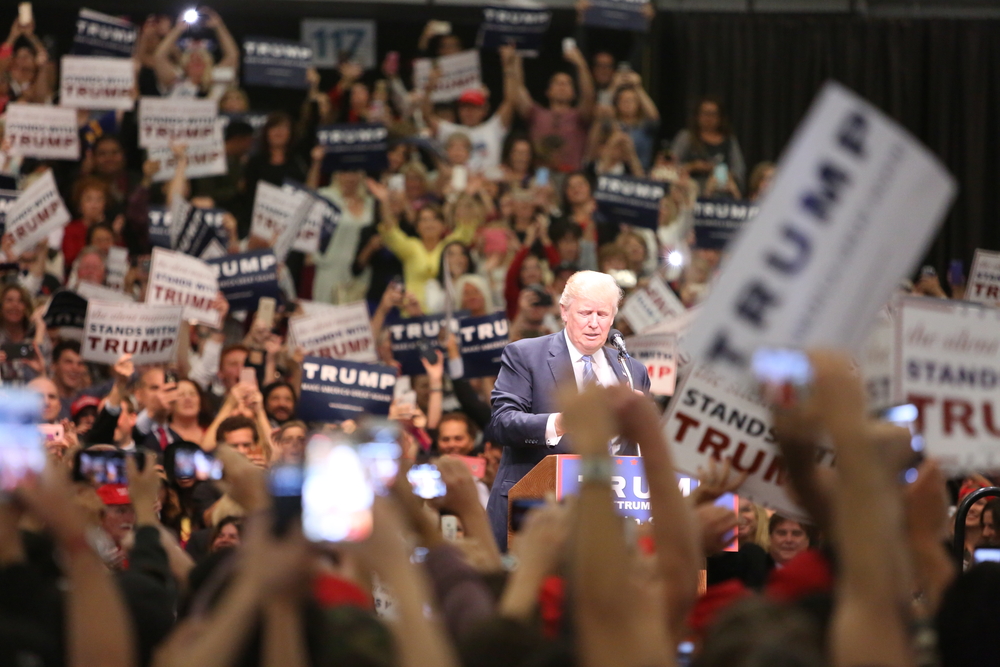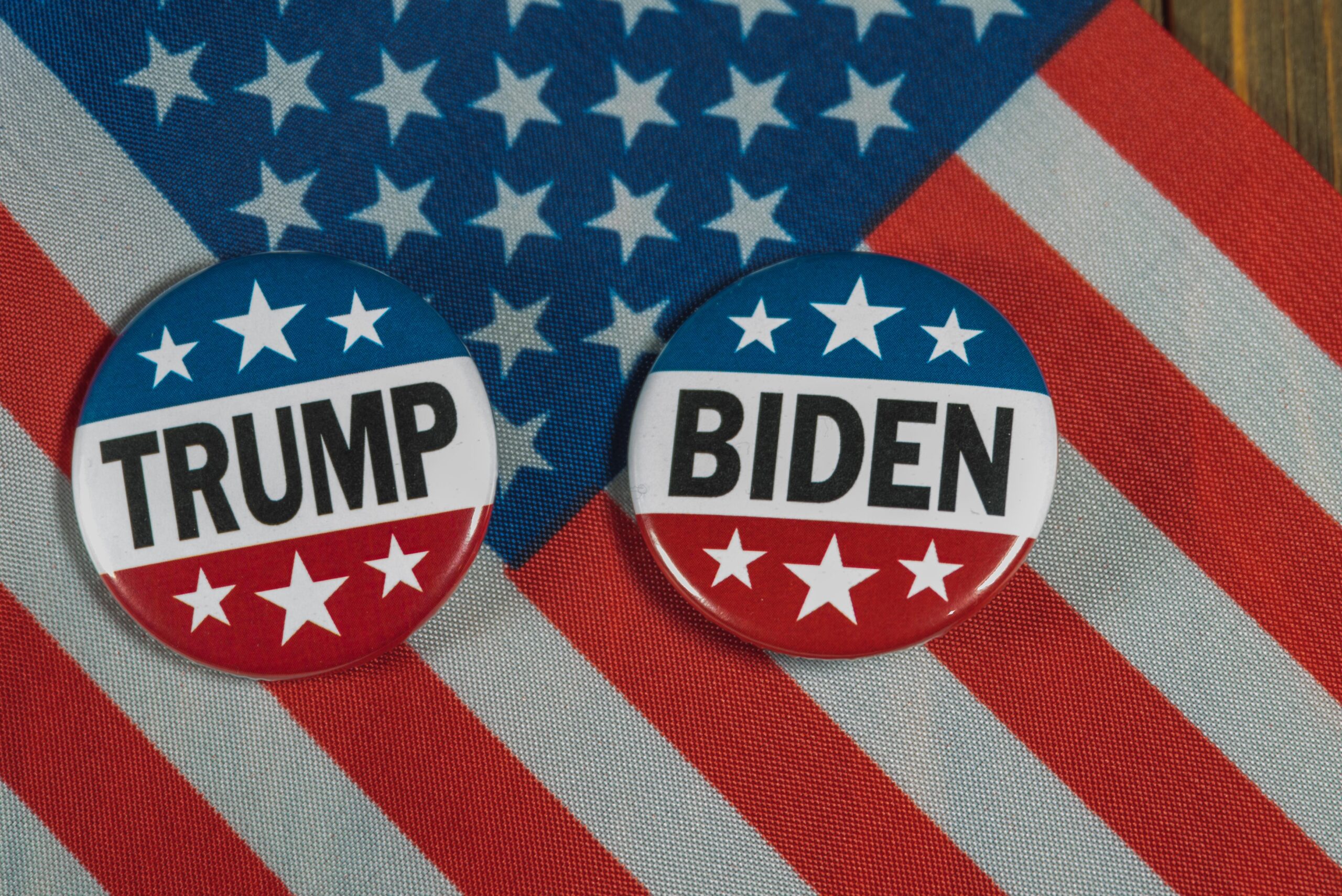
This article was first published in the Mail on Sunday
As a woman in Michigan put it during my latest round of polling in America: “It’s almost painful to watch. I have to change the channel.” But her comment did not refer to the scenes played out in hospitals and elsewhere as the coronavirus wreaks havoc across the US. Instead, she was talking about Donald Trump’s performance alongside doctors and scientists in daily press conferences that have transfixed the nation. “He’s missing the compassion gene,” said another. “He goes off on a tangent about how rich he is and how he doesn’t need a paycheck. It’s not what people need to hear right now.”
Both remarks were from people who voted for Donald Trump in 2016 but were now having second thoughts. Like many others, they were horrified that the country had seemed so unprepared, with such vital things as ventilators, testing kits and protective equipment for health workers in short supply. People felt the response had been too slow, not least because the President had initially downplayed the seriousness of the situation and had failed to underline its dangers. They lamented a lack of leadership at the national level: “You don’t know who’s in charge, who is the adult in the room,” as one confused observer put it. The President’s references to the “Chinese virus” were considered very unhelpful even by those who thought they contained an element of truth.
These reactions chime with a widespread view that the crisis spells disaster for Trump’s chances of being re-elected in November. Strikingly, though, I found that those most critical of the President – aside from those who had never liked him in the first place – were those who were already disillusioned with him before the current crisis hit, feeling the change they were promised had not materialised for them. To these people, his flaws had long ago begun to grate. “Calling people names and throwing out insults gets old after a time,” one woman told us, “especially if the economy is not good.” His response to the coronavirus had simply encapsulated why it was that they were disappointed with him. They hoped he would surround himself with experts and drain the swamp of Washington politics; instead he seemed to be ignoring or undermining the very people whose advice ought to be holding sway.
But that is not the whole story. Though economic optimism is down, overall approval for Trump’s job performance is rising. This is often seen in times of crisis, as Americans rally to the flag. It can also prove fleeting, as President George H. W. Bush found to his cost at the 1992 election, having enjoyed stratospheric ratings a year earlier during the first Gulf War.
Yet there are other straws in the wind. While voters agree that the Covid-19 emergency may not exactly show the President in his best light, for many it simply highlights traits they had long ago decided to overlook. Yes, they say, we know he’s self-indulgent and undiplomatic, and the crisis has offered some prime examples of that. But sooner or later, America is going to have to get back to business, and who better to make that happen Donald Trump. “Who do you want to be there to rebuild the country?” as a man in Tampa put it to us. “To me, that’s going to be his greatest opportunity to shine.” Besides, he added, in what was either heroic determination to look on the bright side or a piece of spin to make Alastair Campbell blush, “He does have experience with bankruptcy. He knows how to get himself out of a hole.”
More to the point, the November election will not simply be a referendum on the Trump presidency, let alone his handling of the coronavirus disaster. It will be a choice between two individuals, the other of whom is some way from setting the nation alight. Joe Biden, now certain to be the Democratic nominee after the withdrawal of Bernie Sanders this week, is considered inoffensive (a big advantage over his predecessor, Hillary Clinton), but any sense that he is the man for the moment is noticeably absent. In my poll, the word Americans most often chose to describe him was “elderly.” More than one former Trump voter who was in the market for an alternative said that Biden seemed to be “not all there.”
Democrats themselves struggle to summon any enthusiasm for him. Many of his primary voters told us he was their second or even third choice after younger and more exciting candidates withdrew, and that they feared the idealistic socialist Sanders could not appeal to potential swing voters. Biden was simply the embodiment of the compromise they knew was necessary to give themselves the best chance of denying Donald Trump a second term.
It was a compromise they were prepared to make, yet the mood among the Democrats we spoke to was gloomy. Although they knew Trump was behind in the polls and saw what they considered his worst features magnified each day as the crisis wore on, something told them that this, like 2016, was not going to be their year. Our poll put that feeling into numbers: when we asked people how they would vote, Biden beat Trump by 12 points. When we asked who they thought would win, the answer was Trump.
Though its actual consequences are all too real, the political effect of coronavirus – as with all the flashpoints of Donald Trump’s presidency – might not be to change people’s minds instead but to reinforce what they thought already. In that case, the outcome in November is no more certain now than it was when Covid-19 was just a minor item in the pages of the overseas news.


